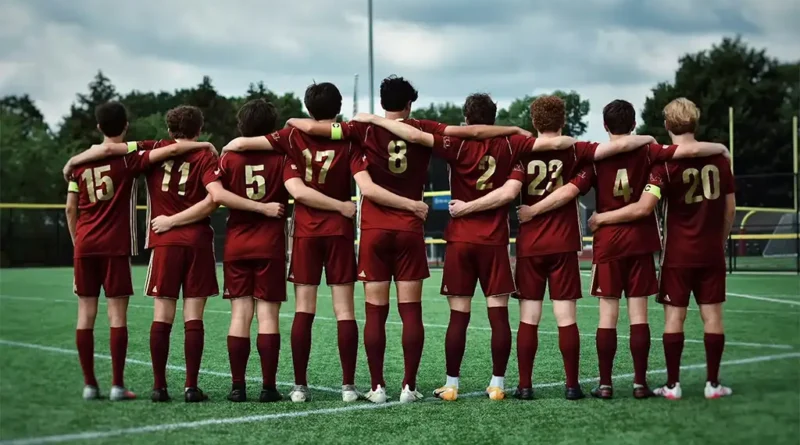Why the Sanctioning Body for College Sports Is More Important Than Ever
College sports have evolved from campus games into billion-dollar industries. In this growth, the role of the sanctioning body has become more critical than ever.
Athletes are no longer just students—they’re public figures, influencers, and future professionals. Managing them fairly requires strong, balanced regulation.
With rising issues around athlete compensation, eligibility, and safety, a central authority is key. The importance of a sanctioning body has moved far beyond rule enforcement.
What Is a Sanctioning Body in College Sports?
A sanctioning body oversees the rules, structure, and integrity of college-level athletic competitions.
It ensures fair play, eligibility compliance, and standardization across colleges.
In the U.S., the NCAA is the most recognized example, though others exist.
Ensuring Fairness Across All Institutions
With thousands of colleges and universities participating in sports, consistency is crucial.
The sanctioning body provides a uniform system that applies to both large and small institutions.
It levels the playing field, giving all athletes equal opportunities to compete.
Maintaining Academic and Athletic Balance
One key responsibility is to protect the student aspect of student-athletes.
These bodies enforce academic requirements to ensure education stays a priority.
Without them, many institutions might sacrifice academics for athletic success.
Regulating Athlete Eligibility
Eligibility rules determine who can play and under what circumstances.
Sanctioning bodies verify academic status, age, amateurism, and transfer rules.
This regulation ensures fairness and prevents abuse or exploitation.
Addressing NIL (Name, Image, Likeness) Issues
The NIL era has revolutionized college sports, allowing athletes to earn money.
Sanctioning bodies now create guidelines to balance opportunity with integrity.
They help prevent commercial exploitation and ensure the system remains ethical.
Standardizing Safety Protocols
Health and safety protocols must be universal across colleges.
The sanctioning body establishes concussion rules, medical checks, and training limits.
It protects players from being pushed beyond safe limits in the name of winning.
Disciplinary Authority and Ethics Enforcement
Sanctioning bodies are also responsible for investigating violations.
They have the authority to penalize coaches, teams, or entire institutions.
This disciplinary power helps preserve the integrity of college athletics.
Supporting Women’s and Minority Sports
Equity is another major area of focus.
The sanctioning body promotes diversity by enforcing Title IX and similar guidelines.
It ensures women’s and minority programs receive fair funding and support.
Navigating Realignment and Conference Shifts
College athletics often face shifting alliances and conference realignments.
The sanctioning body helps manage these changes without disrupting student-athlete welfare.
It maintains structure while adapting to the evolving landscape.
Monitoring Recruiting Practices
Recruitment is a sensitive area that can invite unethical behavior.
The sanctioning body sets recruiting calendars, contact rules, and scholarship limits.
This prevents manipulation and ensures fair access for all athletes.
Managing Media and Broadcast Rights
With college sports on national television, media rights are a major revenue source.
Sanctioning bodies negotiate and manage media contracts to benefit all member schools.
This helps smaller programs thrive alongside powerhouses.
Responding to Legal and Social Challenges
Athletes today are more vocal about social justice, pay equity, and rights.
Sanctioning bodies must adapt policies that respect these voices.
They serve as mediators between tradition and modern demands.
Enforcing Transfer Rules and Portals
The rise of the transfer portal has added complexity to team management.
Sanctioning bodies provide structure to ensure fairness in transfers.
This prevents chaos and promotes long-term program planning.
Promoting Global and Inclusive Growth
International athletes are now a growing part of college sports.
Sanctioning bodies ensure their integration without bias or disadvantage.
They help expand college sports beyond borders while maintaining standards.
Combating Commercial Pressure and Overreach
Big sponsors and corporations can influence programs unethically.
The sanctioning body sets limits and controls to protect athlete welfare.
They ensure that business doesn’t overshadow sportsmanship.
Shaping the Future of College Sports
From e-sports to mental health awareness, college sports are evolving fast.
Sanctioning bodies are key players in guiding these changes responsibly.
They bridge tradition and progress with balance.
Protecting Small and Non-Revenue Sports
Smaller sports programs often face funding cuts.
Sanctioning bodies advocate for their survival and relevance.
They help maintain a full range of athletic experiences for students.
Guiding Institutional Accountability
Universities must follow ethical, financial, and student-centered guidelines.
The sanctioning body ensures schools uphold these responsibilities.
They act as watchdogs in a rapidly growing and commercialized sector.
Conclusion
In 2025, the role of the sanctioning body for college sports is more than administrative—it’s foundational.
It ensures that athletes, institutions, and fans are all part of a fair and thriving system.
As the challenges grow, so does the importance of wise, ethical governance.
Only through strong sanctioning bodies can college sports retain their value, spirit, and trust.




